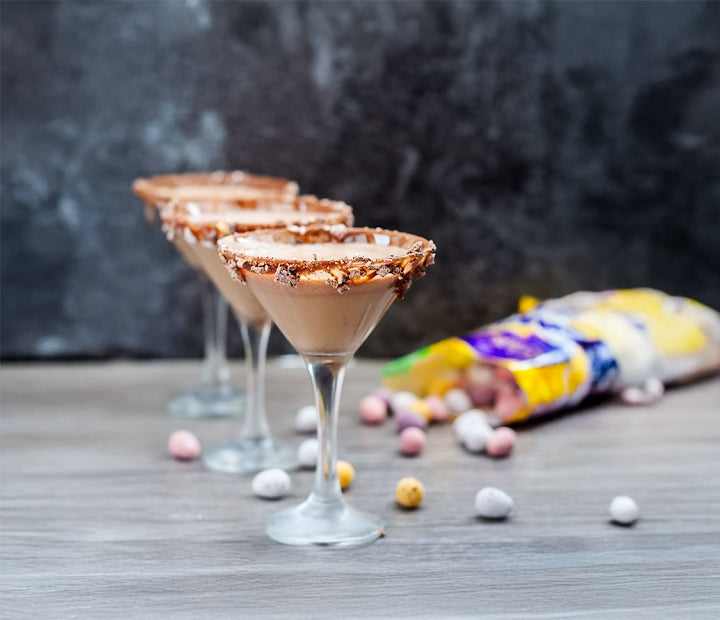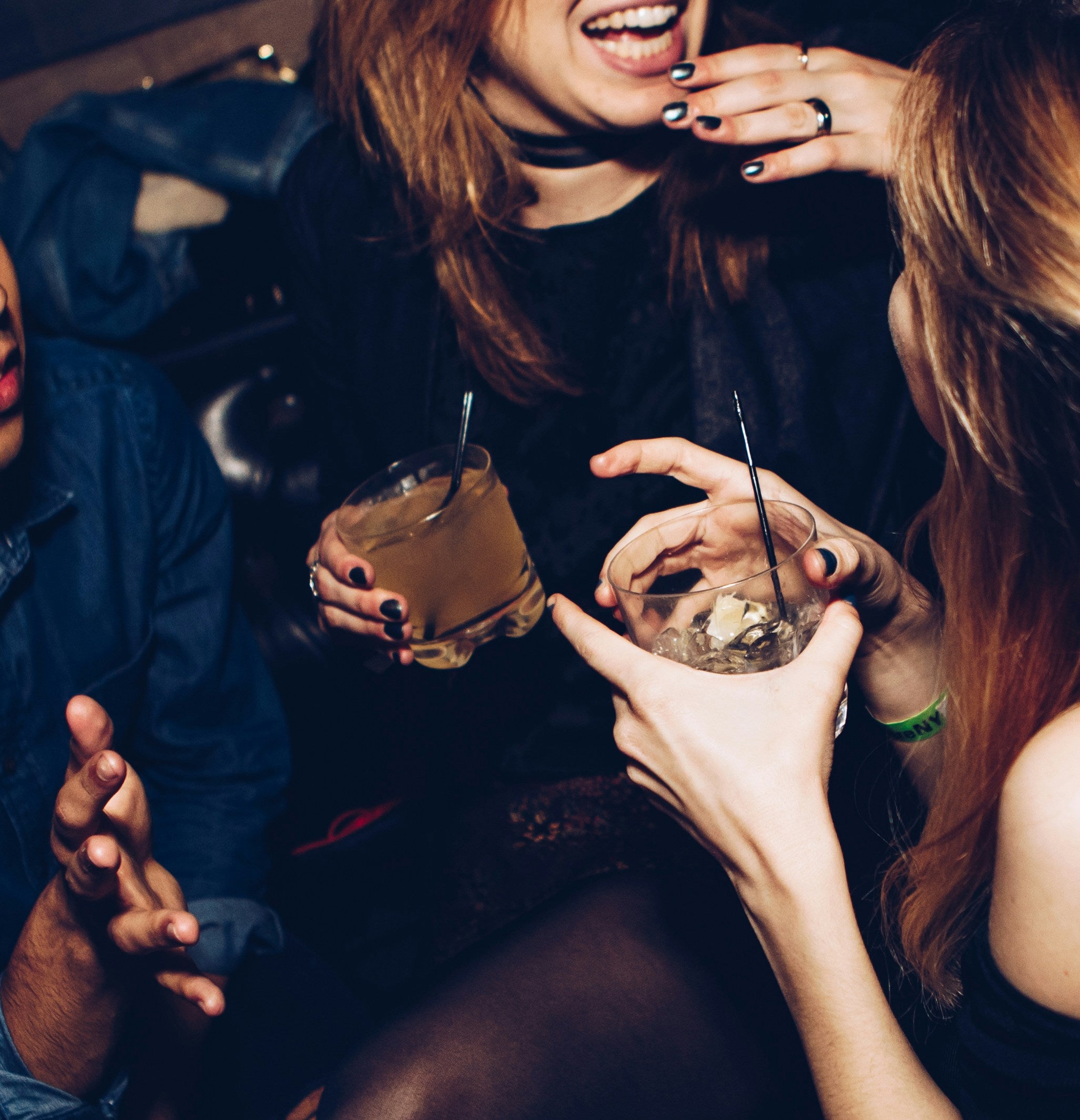
Non-Alcoholic Easter Drinks And Cocktails To Keep It Inclusive
With Easter just around the corner, we’re starting to think about the delicious non-alcoholic drinks and cocktails we...
Read MoreNov 07, 2024

Ever wonder if you’d be happier without alcohol?
Many of us have. Quitting alcohol isn't just about giving up a habit; it's about reclaiming your true self and unlocking a world of possibilities.
People stop drinking or reduce their intake of alcohol for a number of reasons. One of the main ones being health and wellbeing.
Alcohol and serotonin are closely linked - according to research when we drink alcohol we utilise more serotonin in the brain. This means that when we’re under the influence we can feel happier, but the next day and those following we have less serotonin as we’ve used it up. What comes up must come down as they say. Often, this can be felt when we get “hangxiety” the next day.
We’re unpacking the role of serotonin in drinking alcohol and exploring whether being sober makes you happier.
Many of us know the feeling of a hangover. Often the worst part isn’t the physical sickness but the mental fog and anxiety that follows.
Alcohol is a central nervous system depressant that affects various neurotransmitters in the brain, including serotonin. While alcohol initially boosts serotonin levels, it ultimately leads to a decrease in the long run, potentially contributing to the well-known "alcohol blues" or feelings of depression after a night of heavy drinking.
When you’re hungover, the reason you feel so low and want to consume carbs like they’re going out of fashion is largely due to low levels of serotonin. Serotonin plays a vital role in regulating mood, sleep, and appetite. When serotonin levels are balanced, individuals typically experience a sense of well-being, contentment, and emotional stability. However, when serotonin levels are disrupted, it can lead to mood imbalances.
Alcohol has a complex and often counterintuitive relationship with serotonin. While alcohol initially boosts serotonin levels, leading to a temporary feeling of euphoria, this effect is short-lived. It would be great if you could experience the fun, excited sense of joy that alcohol brings without having to come down from it. But the reality is that prolonged or excessive alcohol consumption can ultimately lead to a depletion of serotonin, which makes you feel not-so-great.
Let’s dig into the science.
Serotonin, also known as 5-hydroxytryptamine (5-HT), is a neurotransmitter that is produced in the brains. It’s primarily synthesised in the raphe nuclei, a group of nuclei located in the brainstem, and is then transported to different parts of the brain and body.
In the brain, serotonin acts as a messenger, transmitting signals between neurons and influencing a wide range of functions, including mood, sleep, appetite, and cognitive processes. Serotonin receptors are found throughout the brain, with the highest concentrations in the prefrontal cortex, amygdala, and hippocampus – regions that are closely linked to emotional regulation and mood disorders.
Low serotonin levels are often linked to feelings of sadness, irritability, and hopelessness, while elevated serotonin levels can contribute to a sense of well-being, calmness, and improved sleep quality. When we drink, serotonin is lowered the next day. Hence the feeling of depression.
The problem is, when we drink alcohol it initially causes a surge in serotonin production, leading to a temporary feeling of euphoria and relaxation. This is why many people report feeling "happy" or "carefree" after a few drinks. It doesn’t seem like alcohol is making us anxious or depressed, it actually feels like the opposite!
But don’t be fooled. This initial boost in serotonin is short-lived, and is nearly always followed by a depletion of serotonin levels.
This is because alcohol affects the activity of enzymes involved in serotonin synthesis, such as tryptophan hydroxylase, which is responsible for the rate-limiting step in serotonin production. Alcohol also influences the activity of serotonin receptors, impacting how it is absorbed. This means not only is the production of serotonin distorted, but also the way it is absorbed.
Add in the fact that alcohol affects other neurotransmitters, such as dopamine and GABA, and you have a recipe for happiness-depletion the day after drinking.
Another key reason that people feel happier in sobriety is due to the connection between improved relationships and sobriety. The improved mental and physical health that often accompanies sobriety can also positively impact your relationships.
With a clearer mind and greater emotional stability, it is easier to communicate effectively, resolve conflicts, and deepen the intimacy and trust in your relationships. This, in turn, can lead to a greater sense of fulfilment, belonging, and overall life satisfaction.
By committing to sobriety, you can invest more in relationships and truly connect with others without alcohol. As you navigate your sobriety journey, you may also find that you're able to forge new, healthier connections with individuals who share your values and support your goals.
These relationships can provide a sense of community, accountability, and mutual understanding that can be invaluable. Whether it's joining a support group, engaging in sober social activities, or simply reconnecting with old friends, sobriety can open the door to a richer and more fulfilling social life.
Every person is different. But we know that in studies, people definitely do feel better overall.
At first, people who quit alcohol can feel worse for the first couple of months. However, research shows that sober people experience a steady improvement in quality of life, happiness, self-esteem and a substantial decrease in psychological distress.
Sobriety does not equal happiness. However, by not impacting the balance of crucial neurotransmitters like serotonin, people report feeling more stable and content.
After you stop drinking, your serotonin levels slowly begin to increase. Serotonin is known as the mood stabiliser, so when you quit drinking you feel more balanced.
Ultimately reducing alcohol intake is the best way to boost serotonin levels post-drinking. However, if you’re here the day after a bender, you probably want more urgent advice than “don’t do it again”.
Boost serotonin levels with exercise, outdoor walking, spending time with friends, eating well and hydrating. If you can get some sunlight on your skin that’s great too!
Explore our range of clean cocktails for fun recipes that give you all the flavour without the serotonin depletion. Alternatively, shop our best selling Clean G now.
Have we captured your curiosity? Read on
Please enter your details below to sign in
Please enter your details below to register an account.
Forgot your password? No problem just enter your email to reset you password.